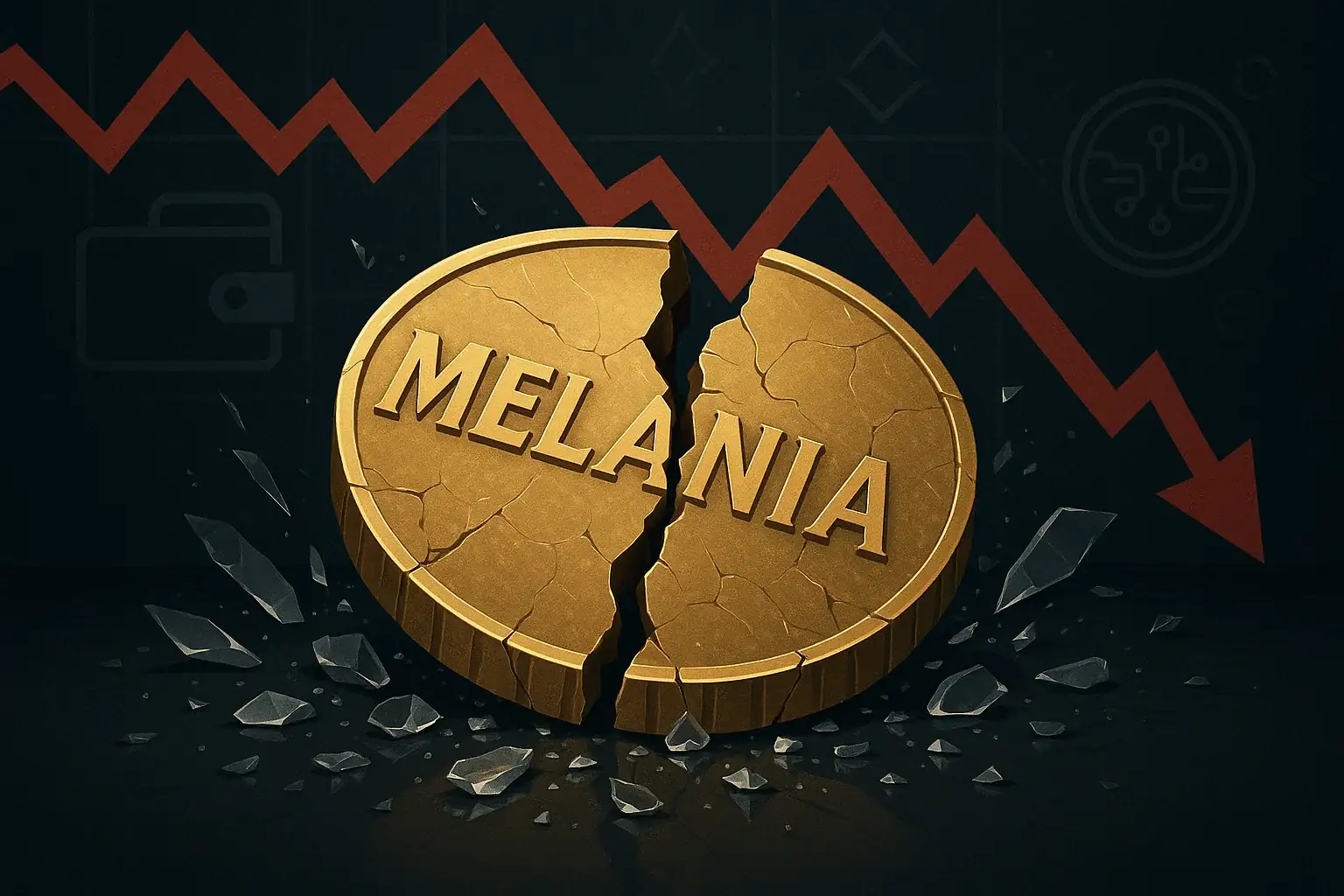The memecoin team MELANIA may be at the centre of a scandal due to suspicions of insider trading, after withdrawing 82.18 million tokens from the project. This is more than 8 per cent of the total volume of coins issued.
According to analytics platform Lookonchain, from February to June, the MELANIA team sold tokens through 44 audited crypto wallets for an amount equivalent to 244,934 SOL, or $35.76 million.
Lookonchain experts noted that memecoins were not sold on the open market, but through the addition and removal of liquidity in pools. As a result of these manipulations, the MELANIA token lost more than 98% from its January peak of $13.73 to $0.20, raising suspicions of manipulation.
Commenting on the results of Lookonchain's observations, Oluwapelumi Adejumo, an analyst at the Bubblemaps platform, pointed out that over 90% of the MELANIA tokens are still under the control of insiders, which should be a clear signal to potential investors that the project is not ready for long-term prospects.
Previously, Senator Elizabeth Warren and Congressman Jake Auchincloss had expressed great concern that the TRUMP and MELANIA memecoins would allow Donald Trump's family to profit from his presidency.
Public reaction and regulatory concerns
The crypto community reacted quickly to the revelations, with many investors accusing the MELANIA team of orchestrating a classic "pump and dump" scheme. Several influential voices on Crypto Twitter have called for stricter regulation of celebrity-backed coins, warning that the lack of transparency and centralised control of tokens pose serious risks to retail investors.
"It's not just a rug pull, it's a political and financial time bomb," wrote one user. "Memecoins tied to political figures have too much power and too little control."
The Securities and Exchange Commission (SEC) has yet to issue an official statement, but anonymous sources within the agency suggest the case is under preliminary review, especially in the context of broader efforts to regulate crypto assets tied to public figures and influencers.
In the meantime, MELANIA's trading volumes have plummeted, with liquidity drying up on all major decentralised exchange platforms. Some analysts predict that the token will be removed from platforms in the coming weeks due to declining confidence and growing legal risks.
The situation remains fluid and experts warn that this could be just the beginning of a broader crackdown on politically-themed cryptocurrencies and the opaque ecosystems surrounding them.
In addition to investor discontent, several blockchain analysts have pointed to the dangers of unverified tokens becoming established solely on the backing of celebrities. "These coins are not only risky investments, they distort the credibility of blockchain innovation," said crypto analyst Laura Shin. She added that these tokens often lack real utility or a development roadmap, relying instead on hype cycles and media attention.
A growing number of legal experts are also urging Congress to adopt specific new laws to regulate political coin offerings. "When tokens are associated with public office or election campaigns, the risks go beyond financial loss: they can pave the way for corruption and illicit campaign financing," warned former federal prosecutor Noah Feldman.
At the same time, retail investors affected by the collapse of the MELANIA token are calling for class action lawsuits. Several law firms have already begun collecting information from victims, raising the possibility of a legal battle that could set a precedent for future political memecoins.








